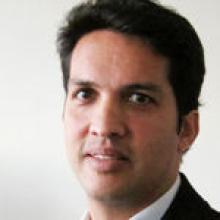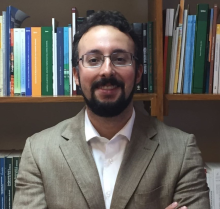Among the most pressing issues facing the world today are rising global temperatures and extreme weather events, such as heat waves, droughts and floods. Global temperatures have risen significantly in the past century, with the mean global tem- perature having already increased by 1 degrees Celsius since pre-industrial levels (Nordhaus, 2013).
Rising temperatures coupled with extreme weather events can have detrimental effects on production, migration, urban development and nutrition, which consequently pose a significant threat to the financial stability of a country. However, such consequences have been commonly overlooked in the literature owing to the short-run focus of most existing studies. See, for example, Stern and Stern (2007); Cavallo and Noy (2009); Tol (2009); Dell et al. (2014); Berlemann and Steinhardt (2017); Cashin et al. (2017).
In order to set up a response to tackle the mounting threat of climate change, a key prerequisite is to deepen our understanding of the effects of climate change on economic activity. Once that is accomplished, financial markets can then play a key role in diverting investment in fossil fuel - a major contributor to greenhouse gas emissions and consequently climate change, which currently constitutes more than 10 percent of global trade and 10 percent of global investment - into green and sustainable choices. As such, this project aims to investigate the short- and long-run macroeconomic consequences of: (i) climate change uncertainty and (ii) volatility of weather events in Brazil.
Specifically, the project tackles the following questions:
-
What is the short-term relationship between temperature and precipitation shocks and economic activity in Brazil at the municipality and state levels?
-
What is the long-term relationship between temperature and precipitation shocks and economic activity in Brazil at the minimum comparable area level?1
-
How can the financial sector direct the allocation of capital in the economy in such a way that increases the economy’s resilience to extreme weather shocks and mitigates the adverse effects of climate change on economic performance?
We therefore expect that the output from this project will: (i) quantify the effects of climate change on economic activity using state-of-the-art econometric approaches, thereby taking into account the econometric shortcomings of the literature; and (ii) advise on policy recommendations by informing financial decision making on lending and investment choices into green and sustainable technologies to ensure economic and financial resilience to extreme weather shocks. Both of these outcomes are at the heart of the Keynes Fund’s objectives.
The research questions addressed in this project are very much at the forefront of the climate-macroeconomy research given that most of the research to date has been mainly concerned with short-run growth effects of climate change (Stern and Stern, 2007; Cavallo and Noy, 2009; Dell et al., 2014; Cashin et al., 2017). Additionally, most research has relied heavily on cross sectional approaches, abstracting from including the time dimension into the analysis (Sachs and Warner, 1997; Gallup et al., 1999; Nordhaus, 2006; Dell et al., 2009) and so leading to biased estimates and misleading conclusions. Even in cases where panel techniques were implemented, specifications often suffered from endogeneity problems, as temperature is only weakly exogenous to growth given bi-directional feedback effects, thus rendering the FE estimator invalid (Nickell, 1981; Chudik et al., 2018). Note that even when panel techniques are employed, the literature makes use of homogeneous panel techniques, thereby ignoring cross-country heterogeneity. Moreover, many studies have focused on country-level analysis or cross-country analysis (e.g. Skidmore and Toya (2002)), thereby largely ignoring within country heterogeneity and dynamics, both of which are important in the climate context.
Furthermore, in order to assess and price environmental risks to enable informed financial and investment decision-making, reliable data and methodologies are required. The novelty of this project’s analysis is due to that we are able to exploit the richness of data availability on sectoral production in Brazil by depth (in time dimension, going back to the 1940s) and by breadth (using sectoral data at the municipality level). Additionally, we require data on weather and climate beyond what is commonly used in the literature. We will collect and construct monthly data on various climate and weather variables including extreme weather indicators and various measures of climate uncertainty and weather volatility. This data collection, cleanup and setup will require a substantial amount of work.
The analysis will follow a bottoms-up approach, starting with a short-term anal- ysis of climate change on the most granular sectoral production data available in Brazil at the municipality level; data is available for 5,000+ municipalities for the duration of 2002-2016. The analysis then builds up to investigate the short-run effects of climate change on production at the state-level, available for 26 states for the period 1985-2006. Finally, the analysis proceeds to examine the long-run effects of climate change on economic production using data on sectoral production for 1,275 minimum comparable areas in Brazil2 over the last seven decades. This multitiered analytical approach will provide a holistic understanding of the macroeconomic effects of climate change in the short- and long-run. It will also provide grounded insights on how the macroeconomic effects of climate change differ with various time and spatial considerations within a country, which to our knowledge has not been attempted before in the literature.
The analysis will be conducted using state-of-the-art panel econometric techniques as well as spatial estimation methods that account for: cross-sectional heterogeneity across municipalities, states and minimum comparable areas in Brazil; dynamics; spillovers between geographic units considered; bi-directional feedback effects between climate and growth nonlinearities and asymmetries. Both data and programming are major constraints for the implementation of this project within a reasonable time frame, hence the reason for the Keynes Fund application.
In summary, the proposed project will constitute a significant contribution to the economy-climate nexus by providing micro-founded estimates of the short- and long-run effects of climate change in a large economy exhibiting large degrees of heterogeneity. The results will be instrumental to better inform financial decision- making needed to increase country’s economic resilience to weather shocks and design effective climate change mitigation policies accordingly.
It is hoped that this empirical strategy can be extended to other countries (such as China, India, Russia and the U.S.) in the future.
1 Minimum Comparable Areas (MCAs) consist of sets of municipalities whose borders were constant over the study period.
2 For more info on MCAs and/or census data, please refer to Cavalcanti et al. (2014).



